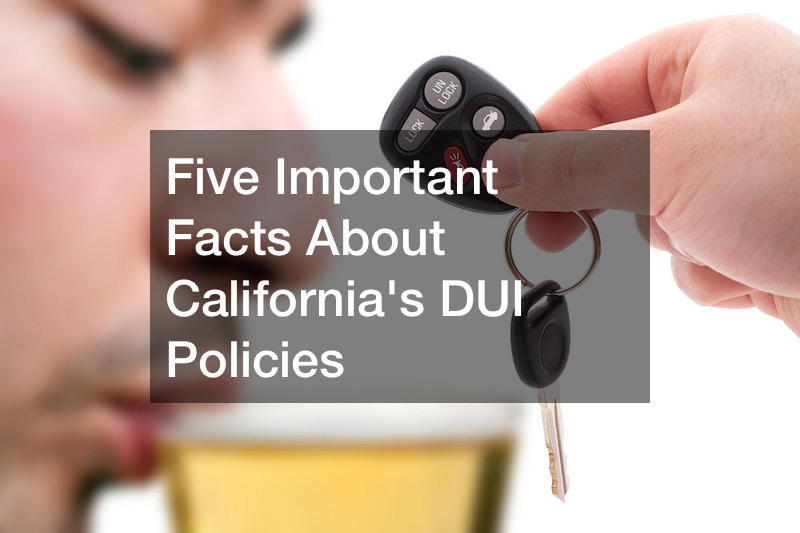
California may seem like one of the most relaxed states in the country, particularly because Hollywood makes it seem like everyone is always at the beach or at a club. Still, their DUI policies are often stricter than in other states. Whether you’re planning a vacation or moving permanently, you’ll need to know some DUI FAQs, including when to start looking for DUI attorneys.
Don’t let the glitz and glamour of movies give you the wrong idea about California’s DUI policies because a suspected DUI could be taken just as seriously as any other felony or crime. Therefore, you’ll need to be responsible at all times, especially if you’re going clubbing. If you get pulled over for driving under the influence, you’ll need to find an attorney as soon as possible.
You should also find out the answers to questions like “What do 3 counts of DUI mean?” and “When will you be excused for driving under the influence?” so you can ease your worries. However, understand that hiring a lawyer doesn’t mean getting a get-out-of-jail card. Being reckless behind the wheel has serious consequences, and California will prosecute you thoroughly. Let’s find out all the facts you should know about this state’s DUI policies.

Navigating and understanding DUI and DWI laws can be very tricky — even though no one exactly plans to have a ton of alcoholic drinks and then get behind the wheel, it’s still a good idea to be aware of laws for driving under the influence (DUI) and driving while intoxicated (DWI). Each state has the ability to determine its own regulations for specific traffic violations, but to look at one particular state’s guidelines, here are a few facts about California traffic tickets regarding DUI charges:
- First and foremost, it’s important to realize that DUI traffic violations can apply to someone who has consumed alcohol, drugs, or a combination of both.
- As far as the drugs go, you can be charged with DUI if you operate a motor vehicle after consuming any prescription medications legally prescribed to you or legal over-the-counter medications that could impair your ability to drive. Additionally, any prescription drugs you’ve consumed illegally and any illegal drug consumption can be grounds for DUI.
- As far as alcohol-related charges go, a driver’s BAC (blood alcohol content) can be grounds for a DUI charge, but depending on the situation, there are three different minimum BAC percentages:
- .08% BAC or higher, for drivers 21 years of age or older who are operating a passenger vehicle;
- .04% BAC or higher, for drivers 21 years of age or older who are operating a commercial vehicle;
- .01% BAC or higher, for drivers under 21
- The penalties for DUI traffic violations can be pretty steep and can last for a long time — if you’re convicted with a DUI offense, it could stay on your driving record for up to 10 years, and can affect other things like employment and housing opportunities for just as long.
- Additionally, the penalties will depend quite a bit on whether you’ve been convicted of DUI before, whether you’ve had convictions for other non-DUI felony or misdemeanor traffic offenses, what your age is, and how much damage you caused to another person’s body or property.
If you find yourself dealing with a DUI charge, the first thing to do id find a DUI defense attorney who can help you sort through the process, and who can help you decide if it’s in your best interest to plead guilty, to fight the charge, or even to contest the state’s law. It’s never a good idea to get behind the wheel if your body isn’t fully functional, but sometimes mistakes happen — and there are people who can help you handle them.
More research here.

